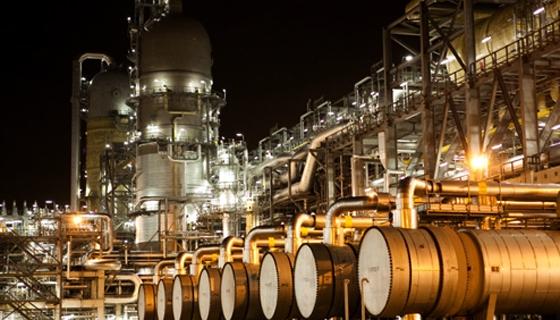Royal Dutch Shell PLC and the Iraqi government are nearing a deal to build an $11-billion petrochemical facility in southern Iraq, according to the government here, the latest large-scale move by the oil major into Iraq's energy sector.
Shell has already invested heavily in helping Iraq exploit its bountiful crude and natural-gas reserves. The company has been developing Iraq's giant Majnoon oil field, which produced its first oil last month and is now pumping some 200,000 barrels a day, according to Baghdad.
Shell also signed a $17.2-billion deal last year to collect natural gas from Iraq's southern oil field production. The gas has traditionally been flared, or burned off, and Iraq has long had ambitions to collect and use the gas to meet domestic energy demand.
The intention to move forward with a petrochemical plant follows a meeting between Iraqi Prime Minister Nouri al-Maliki and Shell Chief Executive Peter Voser in Baghdad. The government said in a statement following that meeting that it was about to sign a "heads of agreement," committing both sides to early planning for the project.
"The heads of agreement will be ready for signing within weeks," the statement said.
A Shell spokesman said that Shell had signed a memorandum of understanding with Iraq in April 2012 to conduct a detailed feasibility study of a potential petrochemicals complex. "We continue to work towards signing a Heads of Agreement with the Government of Iraq in due course," the spokesman said in a statement.
The project is being called Nebras, Arabic for "beacon of light." The project envisions an ethane-cracking unit that would produce ethylene, a compound used in making plastic.
Shell already has a big presence in Iraq, where it is developing the huge Majnoon oil field, near Basra. It, and a number of other global energy companies, won the rights to develop several fields to help the country jump start its oil industry, laid low by looting and sabotage following the U.S.-led invasion in 2003. The industry had also suffered years of neglect and sanctions under Saddam Hussein.
Wall Street Journal
15 November

























































